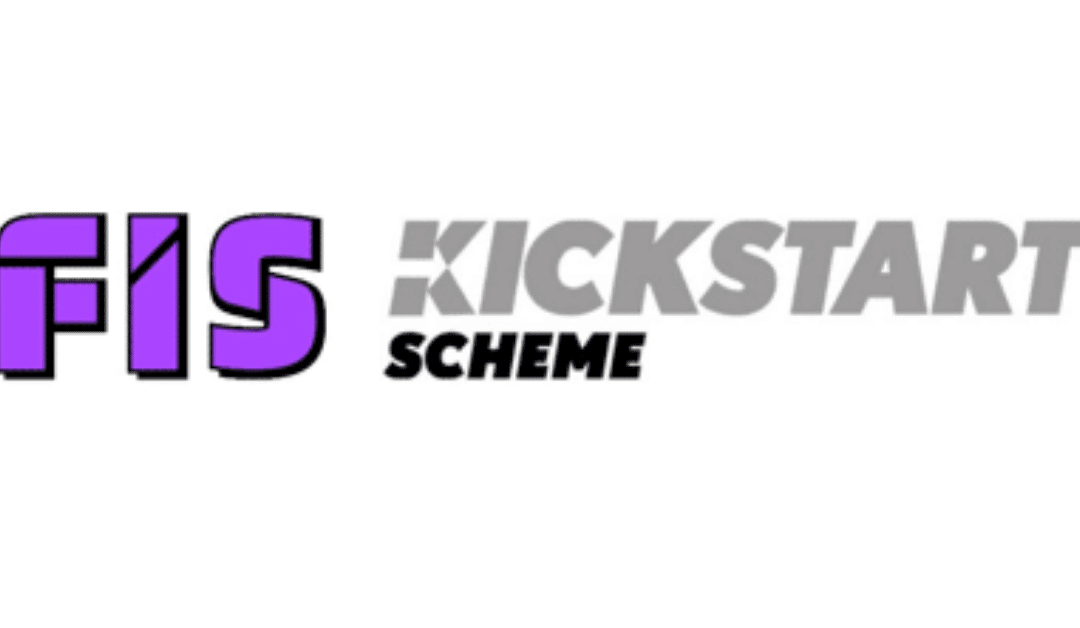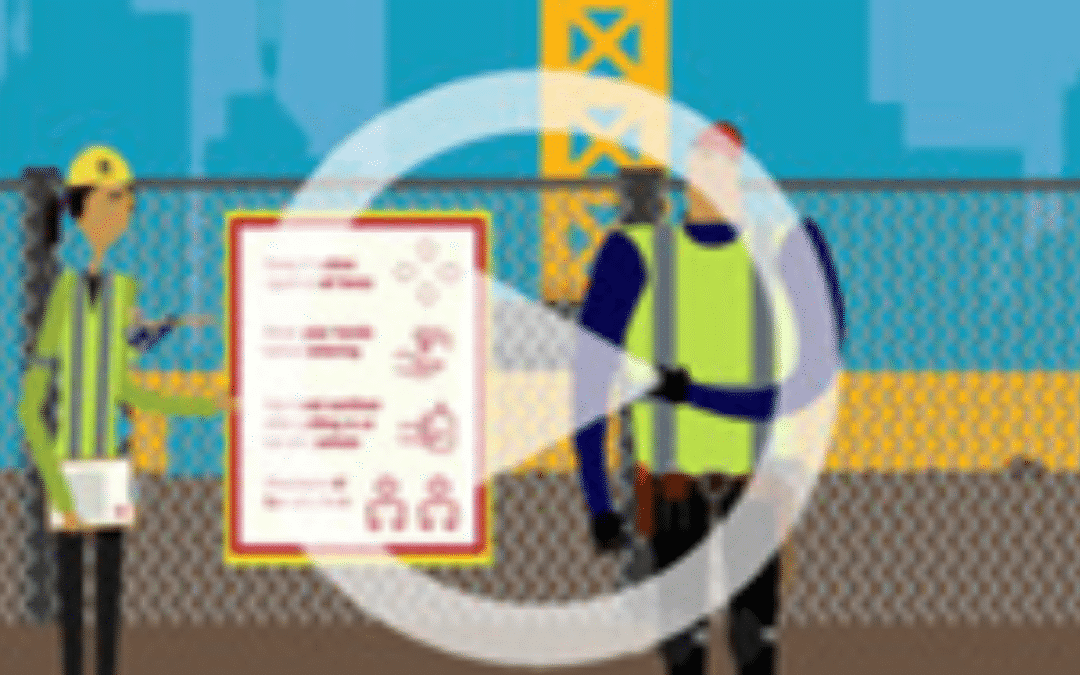
by Clair Mooney | Oct 30, 2020 | Main News Feed
As the UK leaves the EU on 1 January 2021 new rules come into force for construction products that are currently covered by the European Construction Regulation (CPR). This requires products covered by a harmonised European Norm (hEN) to carry a CE mark when placed on the market. From January new rules in the UK require a new mark of conformity Assessment (UKCA) mark to be applied to products put on the market in the UK; Northern Ireland has separate rules where CE marking will be acceptable if the product comes from the EU or a UKNI mark for products coming from outside the EU which includes the UK.
Placing products in the UK market will require the Notified Body to be in the UK and in the EU where manufactures from the UK are exporting to the EU
To help, The Brexit working group of the Construction Leadership Council has published advice and information on the conformity marking of construction products
Read the full press Release here.
And the new guidance EU EXIT BUSINESS READINESS: CONFORMITY MARKING OF CONSTRUCTION PRODUCTS HERE

by Clair Mooney | Oct 30, 2020 | Main News Feed
From January 2021 Organizations putting their products on the market will be able to use the UKCA mark which replaces CE marking in the UK after a transitional period of 12 months until January 2022; This will require products to be handled by a UK notified body including Manufacturers importing products.
Products placed on the market in Northern Ireland will have to use a UKNI mark or CE mark if the product is imported from Europe.
All organisations placing construction products on the market in the UK where a harmonised European Norm (hEN) should check the UK Government website HERE for more information and guidance.

by Clair Mooney | Oct 30, 2020 | Main News Feed
The Construction Industry Advisory Committee (CONIAC) Managing Risk Well Working Group on fire has produced the Construction fire safety: Responsibility and competence matrix for fire safety in construction.
Hosted by the Construction Health & Safety Group (CHSG), the purpose of the matrix is to identify and outline the roles and the responsibilities of those involved in fire safety and prevention on construction projects.
The document sets out the minimum knowledge needed for each role and has been produced to support the construction industry in defining the skills, knowledge, training and experience needed by each of the duty holders’ roles.
Further information about CONIAC/CONIAN and its Working Groups is available from the CONIAN web community.

by Clair Mooney | Oct 23, 2020 | Main News Feed, Transformation
In a bid to drive a greater understanding and support the implementation of BIM in the fit-out and finishing world, UK BIM Alliance is delighted to announce a formal affiliation with the trade body for the sector Finishes and Interiors Sector (FIS).
Iain Mcilwee, Finishes and Interiors Sector (FIS) CEO “There is little doubt that, as construction reinvents itself in the post COVID/post Grenfell era, the Digital Revolution is here. If we look at the reforms that will be driven through regulatory requirements or commercial drivers linked to productivity and quality, how we create and share information through the specification and construction process is key. BIM was always going to struggle to live up to the early hype, but the principles of BIM are already helping us to adapt and change and with greater standardisation and simplification, it will help us to deliver the golden thread along with the structural and cultural changes that we need to see. We are very much looking forward to aligning and working more closely with the UK BIM Alliance and helping our community to understand and implement these changes – like with BIM itself, collaboration is everything.”
Andy Boutle, UK BIM Alliance Engagement Co-Lead “We are delighted to welcome FIS to the affiliate programme who already have an active Digital Working Group focussing efforts in this area . We look forward to supporting and coordinating future activities together.”
The Affiliate programme aims to bring together the professional institutions, trade associations and any other industry organisations to provide a consistent message and coordinated approach to digital transformation, working across silos to a shared objective.
About the UK BIM Alliance
We are here to support the built environment sector take the first fundamental step in their journey to digital transformation. The UK BIM Alliance aims to ensure BIM becomes business as usual whilst at the same time, transforming and future proofing the way the industry work. The UK BIM Alliance is also the UK & Ireland chapter of buildingSMART. For more information visit the website.
About the Finishes and Interiors Sector
FIS is the representative body for the £10 billion finishes and interiors sector in the UK. The FIS membership is drawn from contractors, manufacturers and distributors of ceilings, steel framing systems, partitions, operable walls, plastering, drylining, and specialist interior fit-out and refurbishment businesses.
FIS exists to support its members, improve safety, minimise risk, enhance productivity and drive innovation in the sector. As well as specialist publications, technical support and expert helplines, FIS is a dynamic network that brings the sector together through a range of events, awards and specialist working groups, all aimed at sharing best practice, setting standards and advising Government, that help its members to improve performance and win work.
For more information visit the website.

by Clair Mooney | Oct 23, 2020 | Main News Feed
With the news this week that unemployment surged to 4.5% by August as pandemic hits jobs, this is the highest UK unemployment rate in three years. There is also clear data showing redundancies have risen to their highest level since 2009. The National Office of Statistics states about 300,000 of those currently unemployed are aged 16-24. It is well reported the biggest industries hit are hospitality, travel agencies and employment agencies. The number claiming work related benefits, hit 2.7 million in September an increase of 1.5 million since the beginning of the crisis in March.
After a record low of 343,000 vacancies in April to June 2020, there has been an estimated record quarterly increase of 144,000 to 488,000 vacancies in July to September 2020; vacancies remain below the pre-coronavirus (COVID-19) pandemic levels and are 332,000 (40.5%) less than a year ago.
The Chancellors Plan for Jobs includes the Kickstart scheme. This gives employers an opportunity to engage an individuals for six months. Officially launched on 2 September 2020. The scheme is aimed at helping unemployed young people aged 16-24 get a foothold on the career ladder by funding six-month job placements. Under the scheme, funding will cover 100% of the relevant National Minimum Wage for 25 hours a week, plus associated employer National Insurance contributions and employer minimum automatic enrolment contributions.
One of the elements of this scheme is that applications must be for a minimum of 30 job placements. FIS recognise this is likely to be too many for the majority of our members and as such, we are delighted to advise we have been approved to act as an intermediary on behalf of you, our members and the Department for Work and Pensions (DWP).
As an intermediary, we are able to amalgamate all requests and submit a consolidated bid on your behalf.
To make it as seamless as possible for you to engage with the scheme, FIS will be playing an active part in working with DWP to select the best and most suitable people available, FIS will be there to support you through the Kickstart process. We can also help you to access the £1,500 per job placement fund to cover the initial set up costs and the costs of training and support.
We urge you to support this initiative and give unemployed young people a chance. There is no obligation to employ individuals after the work placement has concluded. Even if you don’t think you’ll be in a position to employ anyone for the next 6 months, you can still give someone an opportunity to train and develop, at no cost to yourself or your organisation and perhaps help them secure a career in construction.
The attached link gives you further information Kickstart Scheme Guidance but if you do have any further questions, please give our Skills and Training Coordinator, Paul Glover a call on 07975 759378.

by Clair Mooney | Oct 23, 2020 | Main News Feed
Following the announcement from the Welsh Government, Test Centres in Wales will be closed from 23 October (6pm) and will re-open on 9 November. There is no need to contact Pearson VUE. All booking will be cancelled with no charges and refunded back. If the booking is with a third party, please contact them for refunds or to reschedule.
Health and safety COVID-secure spot checks ongoing
HSE is carrying out spot checks and inspections on all types of businesses in all areas to ensure they are COVID-secure. By calling and visiting premises and speaking directly to employers, they can check the measures organisations have put in place are in line with government guidance.
Visit the HSE webpage which includes a short video explaining:
- how spot checks and inspections work
- what our inspectors will need to check
- how they can help you keep your workplace COVID-secure
- actions we will take if employers are not managing the risk of COVID spreading

by Clair Mooney | Oct 22, 2020 | Main News Feed
Rishi Sunak has announced big changes to the Job Support Scheme (JSS) – set to replace furlough in November.
The Chancellor has announced an expansion of the Job Support Scheme ahead of its launch on 1 November 2020. Employees will now be required to work at least 20% of their contracted hours, rather than 33%, with employers required to contribute just 5% of wages for unworked hours, rather than 33%. Employers using the scheme will also be able to claim the Job Retention Bonus for each eligible employee retained until at least 31 January 2021.
The scheme will, as before, be open to all small businesses and larger businesses that can show an impact on revenues.
For more information click here.
From 1 November, grants available under the Self‐Employed Income Support Scheme will also be doubled from 20% to 40% of profits, increasing the maximum grant available from £1,875 to £3,750.
You can access updates via the FIS COVID-19 hub here.

by Clair Mooney | Oct 20, 2020 | Main News Feed
The Construction Leadership Council has published guidance on the movement of people and workers into the UK in respect of the expiration of the transition period with the European Union at the end of the year.
The guidance offers an overview of the new points-based immigration system, the Common Travel Area (CTA), the skilled worker route, the shortage occupation list, how to become a licensed sponsor, the rights of EU, EEA and Swiss migrants, the mutual recognition of professional qualifications and the Construction Industry Scheme (CIS) as well as useful links and resources. It is appropriate for all businesses across the industry and along the supply chain.
The guidance has been issued by the Movement of People Workstream of the CLC BREXIT Working Group and comprises the second publication in a suite of business readiness advice that the group intends to publish ahead of 31 December 2020.
FIS Chief Executive Iain McIlwee commented: “We have been supporting this vital group within the CLC and playing in our concerns that the cliff edge we face in January could leave us with a real labour shortage in the sector. We will continue to press this point, but we need to start preparing and time is already short. This guidance from the CLC is, without doubt going to help smaller businesses to pick through what could be a really difficult and bureaucratic process and start communicating with overseas workers in their labour pool in ensuring they secure the right entitlement to work.”.
How the Points Based System Works
The table below explains how points will be allocated for anyone on the Skilled Visa route will work, including mandatory and tradeable points.
|
|
|
| Characteristics |
Mandatory/Tradeable |
Points |
| Mandatory Requirement |
| Offer of job by approved sponsor |
Mandatory |
20 |
| Job at appropriate skill level (RFQ3+) |
Mandatory |
20 |
| Speaks English at required level |
Mandatory |
10 |
| Points for Salary |
| Salary of £20,480 to £23,039 or at least 80% of the going rate for the profession (whichever is higher) |
Tradeable |
0 |
| Salary of £23,040 to £25,599 or at least 90% of the going rate for the profession (whichever is higher) |
Tradeable |
10 |
| Salary of £25,600 or above or at least the going rate for the profession (whichever is higher) |
Tradeable |
20 |
| Additional points |
| Job in a shortage occupation as designated by the Migration Advisory Committee |
Tradeable |
20 |
| Education qualification: PhD in a subject relevant to the job |
Tradeable |
10 |
| Education qualification: PhD in a STEM subject relevant to the job |
Tradeable |
20 |
As it stands, no construction occupations are listed on the shortage occupation list, and many trades within the Finishes and Interiors Sector are not deemed to be at an RFQ3+ level making it very difficult to attract new labour from overseas.
How to prepare as a business
Hiring New People
If you are planning to recruit from overseas from 1 January, you will need to obtain a sponsor licence, which can take up to eight weeks. If you have workers from the EU or EEA who wish to continue living and working in the UK after 30 June 2021, you should advise them to apply for settled and pre‐settled status.
Managing your Existing Workforce
FIS recommends contacting overseas workers to understand their intentions and pre-empt any problems. This will also support you in communicating the importance of applying for settled or pre-settled status. A set of potential questions is provided below to support this activity:
|
Covid-19 Holiday Impact Questionnaire
- Are you a national from an EU member state?
- Are you a national from an non EU member state?
- Have you applied for settled status?
- Have you been granted settled status?
- Have you applied for pre-settled status?
- Have you been granted pre-settled status?
- For how long do you anticipate working in the UK?
- Are you returning home for the festive break?
- Which country are you returning to?
- Does this country have a quarantine policy in place when returning from the UK?
- Does the UK have a quarantine policy in place when returning from your destination?
- From the following list below, which weeks do you intend spending away from work, week number only please?
Week 1 14-20 December | Week 2 21-27 December | Week 3 28 December – 3rd of January | Week 4 4 – 10 January | Week 5 11 – 17 January | Week 6 18– 24 January
|
Access the CLC Guidance on movement of labour is here.
FIS remains concerned about the points based system and impact on labour availability. Government continues to take a very hard line on this with the Home Secretary ignoring advice from the MAC and rejecting any construction trades from being added to the shortage occupation list. We would welcome your support in commpleting this survey.
If you are experiencing or expecting labour shortages, please email your concerns to iainmcilwee@thefis.org

by Clair Mooney | Oct 19, 2020 | Main News Feed
The CPA main scenario for construction output in 2020 is a 14.5% fall as the construction industry shows promising signs of recovery from the coronavirus pandemic. Demand for new private housing and private housing repair, maintenance and improvement (rm&i), as well as strong growth in the infrastructure sector, are expected to support recovery for the industry towards the end of this year and into the next following historic falls in output during lockdown. The prospects, however, of both a deterioration in labour market conditions along with a potential ‘No Deal’ Brexit deal at the end of December mean that the upcoming winter will be decisive for how far such a recovery can be sustained.
The Construction Products Association’s (CPA) Autumn Scenarios, published today, continue to expect a tick-shaped economic recovery as the most likely outcome, with output for construction rising by 13.5% in 2021 from the sharpest fall on record in 2020. The easing of lockdown measures over the summer was accompanied by a rush to meet pent-up demand, particularly in private housing and refurbishment work that couldn’t take place as sites were closed. With social distancing integrated on construction sites, productivity was also able to pick up.
The CPA points out that the housing market is being given a boost from pent-up demand coming through and transactions being brought forward by both the stamp duty holiday and the end of the first phase of Help to Buy in March 2021. Equally, private housing rm&i has benefitted from home working brought on by the pandemic. With more disposable income as a result of spending less on travel and hospitality, many households are choosing to spend it on ‘safe’ options such as home improvements. Some caution remains from 2021 Q2, however, with the end of the stamp duty holiday and uncertainty in the employment market possibly reducing demand.
Along with private housing, the CPA expects the infrastructure sector to be critical for growth. With output not falling as sharply this year as in other sectors due to larger sites making social distancing easier, next year’s growth will capture the start of main works on HS2, plus ongoing work on major projects such as offshore wind, Thames Tideway and Hinkley Point C. Only airports within the infrastructure sector are expected to see a decline in activity over the next few years, given sharp declines in airline passenger numbers as a result of the pandemic.
Commenting on the Autumn Scenarios, the CPA’s Economics Director, Noble Francis, said: “The easing of the social distancing restrictions in summer led to a sharp recovery in certain sectors of the construction industry – most notably, in the form of increased demand for private housing and private housing rm&i where growth is currently strong. The government’s commitment to infrastructure delivery, as outlined in the National Infrastructure and Construction Procurement Pipeline for 2020/21, is also a promising sign of growth.
“But, uncertainty continues to loom for the commercial sector. If working from home becomes more engrained in society, footfall in city and town centres will decline leading to a lack of demand for office and retail space. Equally, a critical winter lies ahead for the wider economy. The key risks to the construction industry remain a potential second national lockdown and a ‘No Deal’ Brexit, which are illustrated in the CPA’s other scenario. Either would lead to a second dip in the UK economy and construction output.
“A free trade deal agreed in principle with the EU, with the details determined over time, would at least give some degree of confidence for what is still a fragile economic recovery. In addition, construction recovery so far has been highly reliant on government either directly through spending in infrastructure or indirectly through policy stimulus to boost housing. Government has an extra responsibility, therefore, to deliver on its announcements and ensure construction recovery does not stall in the next 12 months. We certainly aren’t out of the woods yet.”

by Clair Mooney | Oct 16, 2020 | Main News Feed
The Construction Products Association’s State of Trade Survey for 2020 Q3 is now available. Key survey findings include:
- 33% of heavy side firms and 48% of light side firms reported that construction products sales rose in Q3 compared with the previous quarter, improving from the weakest balances in nearly 12 years.
- On balance, 56% of both heavy side and light side manufacturers anticipated a rise in sales over the next three months.
- Half of heavy side firms anticipated a decline sales over the next 12 months, according to a balance of 24%
FIS members can access the full report here.

by Clair Mooney | Oct 16, 2020 | Main News Feed, Material Shortages
The impact of coronavirus has caused significant disruption to international supply chains and resulted in a substantial reduction in stocks of wood and timber products. The UK is currently experiencing long lead times, with limited availability for immediate sale, and structural timber and plywood are of particular concern. Members are advised to identify all elements of work that use timber products, contact suppliers, and look at how delays may impact project timelines following the end of the transition period.

by Clair Mooney | Oct 16, 2020 | Main News Feed
With 80 days until the end of the Brexit transition period, Business Secretary Alok Sharma has written to more than 600,000 businesses urging them to act now and make sure they are prepared. Regardless of whether the UK reaches a trade agreement with the EU, there will be guaranteed changes from 1 January 2021, including the ways in which businesses import and export goods and hire people from the EU.
In order to minimise any disruption, businesses can use the Government’s checker tool which will set out exactly what they need to do. There is also a free construction webinar on Wednesday 28 October at 11:00am, which will provide sector‐specific information on the actions businesses in construction should take.

by Clair Mooney | Oct 15, 2020 | Main News Feed
The COVID-19 pandemic had and continues to have a significant impact on UK construction, the sector’s finances, and its productivity but the industry has responded well. Prompt, collaborative, and creative action has shown that both individuals and businesses can restart and reset on a path to recovery. However, as we have seen across the UK, COVID-19 continues to pose risks to construction operations, even where sites are following government guidance. It is essential that firms and employees remain vigilant, continue to follow national and local guidance, and plan for disruption to operations, working collaboratively with clients and firms in the supply chain.
As the risk of disruption due to the weather increases and adds to these risks, it has never been more important for the sector to manage the uncertainties of the second wave of COVID-19 and the end of the transition period after Brexit.
The Construction Leadership Council (CLC) now urges construction businesses of all sizes and types to strengthen not only their own, but whole supply chain winter resilience. Businesses are encouraged to ensure they understand, prepare, manage and adapt for potential challenges ahead.
- Safeguard people and assets whilst maintaining business operations – Implement and keep up to date with evolving COVID-19 Site Operating Procedures including the use of face coverings and local COVID alert levels. Encourage all to download and use the NHS COVID-19 App and ensure QR codes are displayed prominently on sites and in workplaces. (see FIS COVID Hub for more details)
- Recalibration and collaborative administration of contracts – Responsible and fair behaviour in contractual arrangements impacted by COVID-19 will support the performance and viability of contracts and supply chains. Recalibration of productivity under evolving safety systems and accommodating the impact of COVID-19 in existing and future contracts, ensuring cashflow is maintained and collaboratively settling disputes and financial distress will be essential for a sustainable industry recovery. It is everyone’s responsibility to ensure payments flow down the supply chain, and vital that all businesses play their part by maintaining payment and by managing current and future contracts responsibly to preserve industry competence, capability and capacity. Extensive guidance can be found on the CLC website (sign the RICS Conflicts Avoidance Pledge here)
- Protect and retain skills of the sector – Firms should seek to ensure that as many of those in the construction workforce as possible continue to be employed during these difficult times. Subject to eligibility, government support will be available through the Job Support Scheme and Job Retentions Bonus. Support is also available to employers who hire new apprentices until 31 January 2021. Where redundancies are unavoidable, firms should take action to help their employees find new roles, in order to retain their knowledge and skills within the industry. Firms should register to use the Talent Retention Scheme, and use this where possible, as well as encouraging their employees to do so.
- Prepare for the end of the transition period on 31 Dec 2020 and beyond – Businesses should understand and prepare to maintain business continuity as we advance towards transitioning out of the European Union at the end of the year. Significant issues to consider and prepare for include the movement of people, movement of goods and materials, standards and alignment and data adequacy. Use the online GOV.UK checker to get started and keep up to date with CLC specific construction guidance and online seminars including the construction event on 28 October. Companies in the Finishes and Interiors Sector can also access the FIS Brexit Toolkit here.
- Updates on guidance – Construction businesses should register to receive updates from government in relation to COVID-19 and transition business readiness. This can be done by registering on GOV.UK.
FIS continues to support a number of workstreams through the Construction Leadership Council, including work on pipeline (through the Local, Social and Commercial workstream), movement of labour, standards and regulation and fair working practice.
You can find out more about the work of the Construction Leadership Council here.

by Clair Mooney | Oct 15, 2020 | Main News Feed
CITB has extended the grace period for expired Site Management Safety Training Scheme (SMSTS) and Site Supervisors’ Safety Training Scheme (SSSTS) certificates until 30 November 2020. Workers whose certificates expired after 15 March 2020 now have until this date to successfully complete the relevant refresher course; if a certificate is not renewed in time, the full course will need to be completed.
The Skills and Training Fund, which was expanded to include skill retention and sustainability projects during the coronavirus pandemic, will revert to supporting productivity and innovation projects only from 1 December 2020. There is detailed guidance for both small and micro‐sized and medium‐sized businesses on how to apply.

by Clair Mooney | Oct 15, 2020 | Main News Feed
CITB has asked for employer feedback throughout the COVID-19 pandemic to enable them to support the construction industry where it matters most and to shape the work they do. This is an opportunity to say where CITB funds are directed in order to make the most difference for you.
As part of the review of the support CITB offers, they are inviting organisations and their employees to share their views on training and the Grants Scheme. Employer feedback matters and this is your opportunity to help develop what CITB offers in the future. Please complete the feedback form, which should take no longer than 10 minutes, by 5pm on 2 November 2020.

by Clair Mooney | Oct 15, 2020 | Main News Feed
The CLC’s Talent Retention Scheme is a not for profit programme, supported by business associations, member companies, professional institutions, unions and other stakeholder organisations.
George Swann FIS Skills and Training Lead said, “After the considerable investment it is good to see the scheme getting some traction”. The Construction Leadership Council’s Talent Retention Scheme (CLC TRS) is designed to support careers in Construction, Engineering and Building Services. It was conceived to help talented individuals showcase their experience and expertise and help businesses find the skills they need. Statistics As of 9 October 2020 the Construction Talent Retention Scheme has:
- 714 registered employers in England, Scotland, Wales and Northern Ireland;
- 56 companies have live vacancies;
- there are 639 live vacancies;
- 86% of live vacancies are in England, 6% in Scotland, 5% in Wales; 1% in Northern Ireland and 2% are international. Of those in England, 33% are in London and the South East.
- 904 individuals have registered;
- 76% of companies registered are SMEs; 9% have over 1,000 employees;
- 48% of all live vacancies are posted by SMEs;
- 51% of companies registered are contractors; 15% consultants; 5% manufacturers; 5% building merchants; and 5% home builders;
- The largest number of vacancies are in Construction & Project Management and Design & Engineering.
To make use of this free service go to: FIS Talent Retention Scheme

by Clair Mooney | Oct 14, 2020 | Main News Feed
CITB Levy registered employers should have now received their 2020 Levy Return, covering 6 April 2019 to 5 April 2020, which must be completed and submitted by 30 November 2020. Failure to submit the Levy Return by 30 November will result in grant claims being withheld and if it is not received by 31 March 2021 employers will lose eligibility for all grant claims.

by Clair Mooney | Oct 12, 2020 | Main News Feed
The UK has left the EU and is leaving the EU single market and customs union. The end of the transition period will affect construction businesses. Your business should take action now to prepare.
This webinar, presented by the Department for Business, Energy & Industrial Strategy, will provide information on the actions you should take to prepare your business for new rules from January 2021 including:
- Hiring staff from outside of the UK
- Providing services to EU customers
- Preparing for changes to importing and exporting
- Checking your goods comply with regulations in Great Britain and in the EU
- Checking tariffs that will apply to goods you import
- Complying with UK REACH chemical regulations
- Transferring personal data between the UK and the EU
Who should attend: This webinar is aimed at those who run or own construction businesses including:
- Merchants
- Manufacturers
- Housebuilders
- Consultants Engineers
- Supply chain businesses

by Clair Mooney | Oct 8, 2020 | Main News Feed
Across October, the Health & Safety Executive (HSE) is conducting assessments across the UK to analyse any respiratory risks caused by the exposure from certain substances across construction sites.
One of the biggest causes of respiratory-related illnesses in the construction sector is the exposure of harmful dusts affecting workers’ lungs. Statistics show that more than 3,500 builders die each year from cancers related to their work, with thousands of more cases of ill-health and working days lost.
Have you got adequate measures in place to protect your workers against being exposed to harmful substances like dust?
FIS Associate Member Citation has created a free guide for FIS members summarising all you need to know about dust, how to prevent being exposed to it, and how to ensure your people are fully equipped and protected.
Your FIS Member Benefit
If you’d like to chat about how Citation can help with the HR and Health & Safety side of your business, just give them a call on 0345 844 1111, or fill in this call-back form and Citation will get back to you.
FIS members are entitled to preferential rates on Citation’s services. Quote ‘The Finishes and Interior Sector’ when enquiring to access your member benefit.
Interested in becoming a member? Visit www.thefis.org/join for more details. Or call us on 0121 707 0077 and we’d be happy to discuss this with you.

by Clair Mooney | Oct 5, 2020 | Main News Feed
The competence requirements for the proposed new role of the Building Safety Manager have been set out in a new report Safer people, safer homes: Building Safety Management.
Under new legislation being introduced in the draft Building Safety Bill published in July, those deemed responsible in law for the safety of higher-risk building, such as the landlord, will be required to appoint a Building Safety Manager. In the draft Building Safety Bill, homes that fall in the higher risk category are multi-occupied residential buildings of 18m or above, or six or more storeys in height.
The role of the Building Safety manager will be to look after the day-to-day management of fire and structural safety in higher-risk buildings and establish a clear point of contact for residents for fire and safety related issues.
The concept of the Building Safety Manager role was recommended by Dame Judith Hackitt in Building a Safer Future review of fire safety, in the wake of the Grenfell Fire, published in 2018.
Safer people, safer homes: Building Safety Management is the result of a two-year collaboration between experts from the social housing sector, commercial and residential management, facilities managers, health and safety experts and fire safety experts.
This expert group (Working Group 8) is one of a number of sub-groups within the Competence Steering Group which has brought together 150 organisations from across the built environment and fire sectors to improve competence and change the culture of those who design, construct and manage buildings. A summary of WG8’s work is included in the Competence Steering Group’s final report, Setting the Bar, which is also published at the same time.
Safer people, safer homes: Building Safety Management sets out a comprehensive framework for the new Building Safety Manager role, focusing on the competences and job functions for individuals – so called ‘Named Individual Building Safety Managers’ and how they can sit within a wider organisational structure, the Organisation Building Safety Manager, to ensure sufficient support and resources. The report updates and enhances the work undertaken and reported in WG8’s interim report issued in August 2019.
The skills, knowledge, experience and behaviours outlined in Safer people, safer homes: Building Safety Management will be used by the British Standards Institute to develop a national standard, that Building Safety Managers will be expected to meet.
Anthony Taylor, chairman of Working Group 8, said: “It is fully understood that the immediate concern is to deliver safe homes to those in ‘higher risk residential buildings’, but we have anticipated that the role, model and management systems should be rolled-out across the whole residential property sector during a reasonable, and sustainable, transition period to support the wider culture change needed.”
Graham Watts, Chairman of the Competence Steering Group and chief executive of the Construction Industry Council, said: “This is a ground breaking piece of work that will help raise the standards of people who own and manage residential blocks, and provide assurance for those that live in them.”
Safer people, safer homes: Building Safety Management is also calling for the Building Safety Manager role to retain the wider ‘holistic whole building’ obligations for occupiers’ safety and health, including public health considerations as well as those for fire and structural safety.
The full report also makes recommendations on:
- The responsibilities and role of the Accountable Person (the term for a landlord or owner responsible in law for the safety of the building)
- Calls for occupiers to play their part in improve their and their neighbours’ safety, to have access to relevant information and to be provided with clarity on their obligations to relevant stakeholders
- The need for an extended “Fire Kills” campaign to inform occupiers about potential fire safety risks and how to mitigate them
WG8 Report Safer people, safer homes: Building Safety Management is available here
The Full Report Setting the Bar and accompanying Annexes can be downloaded here.
The Executive Summary is available here
Join the FIS / ASFP Debate on the incoming Building Safety Bill on the 8th October here.



















